Not a member yet? Sign Up!
Info
Please use real email address to activate your registration
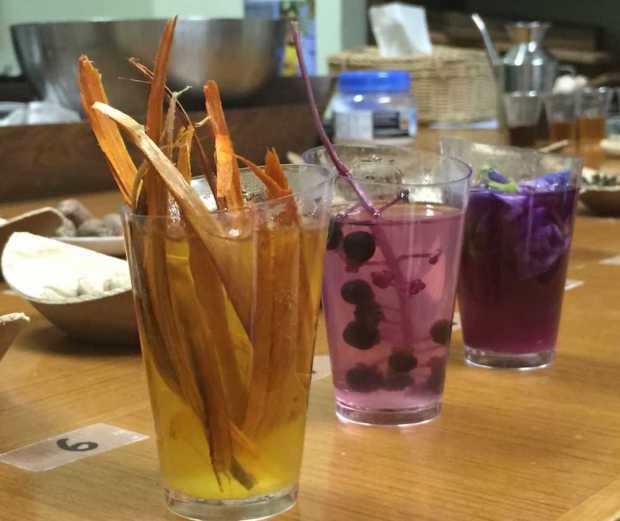
Since 2012 Javara Indigenous Indonesia has always been our favored topic for a blog post. Founded by Helianti Hilman, an award winning social entrepreneur, Javara is a source of innovation in promoting and offering Indonesia’s artisanal food products. Javara works with more than 100,000 small holder-farmers all over Indonesia by respecting food identity, and highlighting their places of origin, unique characteristics and most importantly, the producers.
Heritage Food
Javara shop is not only impressive with its ever changing artisanal products that at times could reach 500 in numbers, it is also a space for people who are interested in exploring the wonderful color, aroma, flavor and texture of Indonesia's curated heritage food.
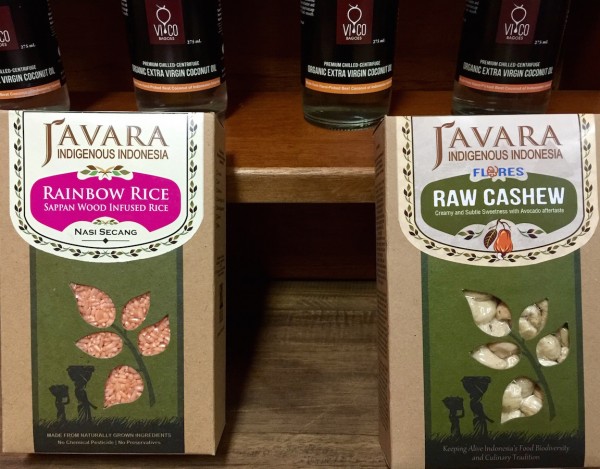
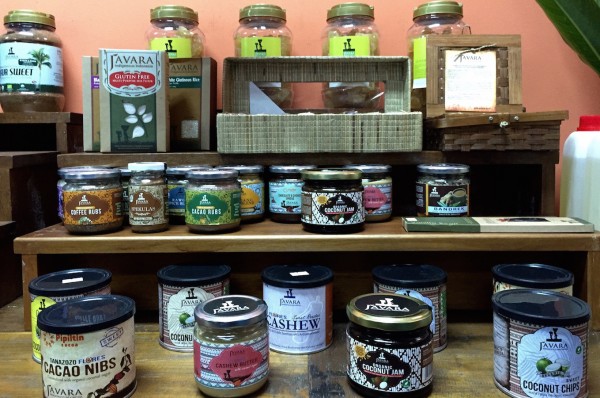
It is in this colorful space that a group of food enthusiasts gathered for an Ethnic Food Workshop and Lunch Experience on February 20. I was attracted to this event through a Javara e-flyer with the above description and a tagline: Learn-Taste-Share. The program surely tempted many of the participants as it outlines the day’s rundown: spice quiz, introduction to Indonesia’s ethic food ingredients, cooking demo, ethnic lunch experience, with free goodie bags to boot.
Javara categorizes its products into groceries, fresh produce, and tropical heritage food gardening. Browsing the Javara groceries through its website is like enjoying a painting masterpiece.
No Artificials
Through Javara’s guidance, rice, beans, nuts, gluten free starch & flour, noodles and vermicelli look very tempting even before they are prepared into fine food. There should be no guilty feeling in consuming Javara’s jam & spread, nuts & snacks, cookies & candy and chips & crackers. After all Javara guarantees no artificial flavorings, aroma, colorings and chemical additives in its products.
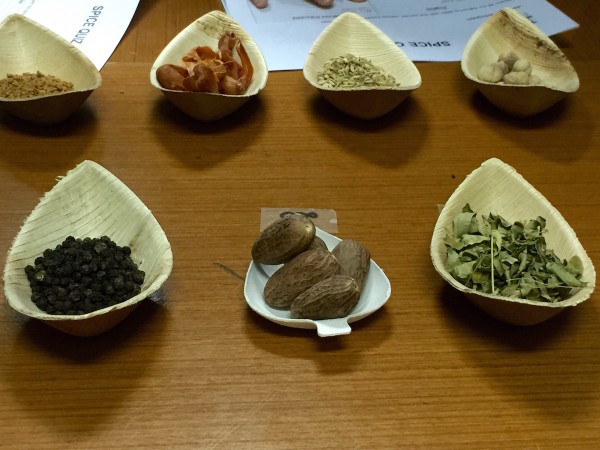
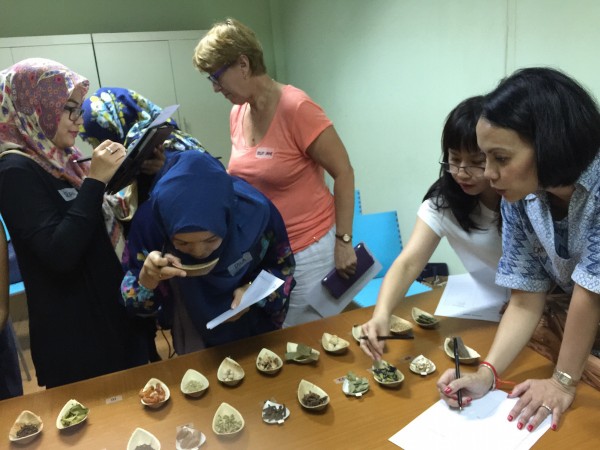
It seems that Javara’s e-flyer didn’t do justice to the real workshop and lunch. Yes there was a spice quiz, but I didn't know beforehand that it’s going to be the fun portion of the day. We laughed, touched, smelled, frowned and sometimes tasted the 35 herbs and spices that we had to guess in a limited time given
Even those who are good cooks were not able to name all the 35 items in English, Indonesian and their local names. Just to name a few, there were pieces of dried kecombrang (torch ginger), kluwak (black nut), daun kelor (moringa leaves), bunga pala (nutmeg mace), and serai (lemon grass).
Eye-catching Ingredients
Introduction to Indonesia’s ethnic food ingredients began with a short video presentation introducing Javara Indigenous Indonesia. I encouraged you to watch the clip here as it beautifully shows Indonesia’s landscape diversity and the colorful resources produced there with a traditional song as a background music.
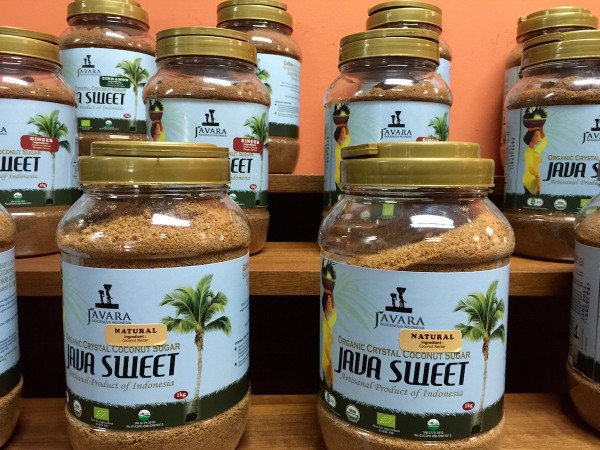
We watched slide after slide of Javara’s eye-catching creation of ingredients, showing the results of collaborations with farmers far and near. Ingredients tastings followed the slides. Who would have thought that honey has different tastes depending on the trees they were harvested from. Javara boasts 12 types of single blossom honey, including clove, coffee and soursop. Even varieties of salt and palm sugar have distinct flavors. I guess we just have to be sensitive to our gustatory system. With help it will not be too difficult, but doing it alone is a tall order.
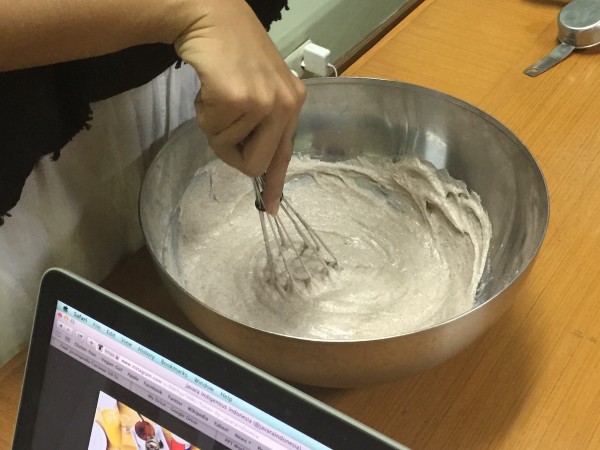
The cooking demo happened right before lunch where we observed our dessert in the making: gluten free waffle with coconut jam. Famished we strutted to the dining table, took our position and rather than eat, we first snapped some pictures of the ethnic food from different angles.
Goody Bags
I believe everybody had their second helpings of the alluring ayam kecap (soy sauce chicken), mie bumbu pecel (spicy nut sauce noodle), tempe mendoan (fried tmendoan tempe) and urap jantung pisang (banana bud salad). A free flow of fresh teh es bunga telang (iced blue pea flower tea) quenched our thirsts in the hot Saturday afternoon.
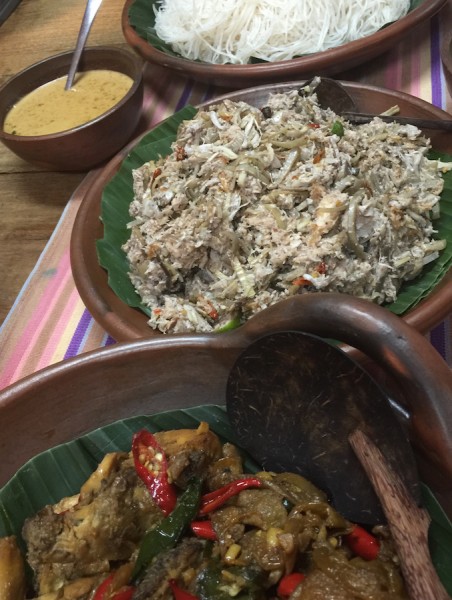
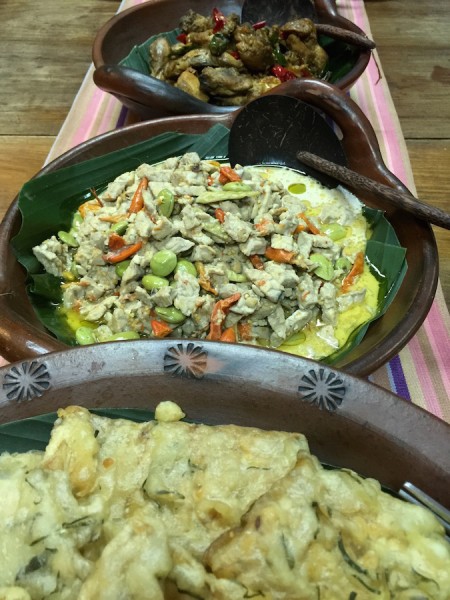
Smiling Javara staff handed us newspaper craft goodie bags of Javara products: soun pati ganyong (Canna edulis glass noodle) , minyak kelapa (cold pressed coconut cooking oil) and Javara pure gourmet salt. No one is immune to Javara products as we all bought some more groceries, especially the coconut jam as ithis month Javara has a buy one get one promotion for that.
I thought our fun and informative session at the Saturday workshop has ended, but Javara delighted us some more, as a few days later all participants received a thank you note, group photos, and recipes of all the food we enjoyed there. It was a memorable experience that I would like to repeat, as Javara has a monthly session of the Ethnic Food Workshop and Lunch Experience. The next one is planned for Saturday, March 26.
Image: Javara
--------------------
Text: Amanda Niode
Images: Omar Niode Foundation, unless otherwise noted